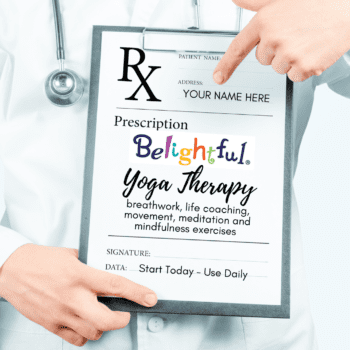The answer for the vast majority of us is a resounding no. Because when it comes to getting enough rest and relaxation, most of us don’t place much of a premium on the value of R&R.
It’s often considered something we’ll get around to if we have the time. And then even when we DO have the time, there are always countless other distractions as well as the to-do lists that clamor for our attention.
But rest and relaxation are essential to your well-being.
Why Getting Enough Rest and Relaxation Matters
When’s the last time you muttered the words, “I am so stressed”? If it was recently, join the club.

Unfortunately, stress is so commonplace now that it’s become normalized. You may not even realize that’s what’s going on. But trying to cram 25 hours’ worth of work and activities into every 24 hours is a sure recipe for disaster. And that disaster comes in the form of health problems.
Even if you’re eating well, exercising, and getting plenty of hydration, experiencing chronic stress can lead to high blood pressure, insomnia, heart issues, cardiovascular disease, chronic pain, and may even contribute to dementia and seizures.
So what counters the negative impact of stress? (You can probably guess the answer.) Rest and relaxation. Here are some of the ways that getting proper rest and relaxation benefit you:
1. Boosting Your Immune System
When the body isn’t given ample opportunity to reset through rest and relaxation, the immune system takes a hit. And when the immune system is weakened, it means you’re more susceptible to viruses and infections.
Proper rest and relaxation allow the body to get refreshed and renewed so you can more effectively handle whatever is coming your way.
2. Making It Easier to Maintain a Healthy Weight
You may not have ever considered the impact of rest on maintaining your weight. But the fact is, a regular lack of sleep will throw the hormones that regulate hunger way out of balance. Such imbalances can result in insulin resistance and, if not addressed, diabetes.
Furthermore, being in a state of stress and exhaustion leaves you prone to craving simple carbs that will give you a quick energy fix. These types of foods not only pack on the weight but also fail to provide the balanced nutrition the body needs.
3. Contributing to Memory Health

If you ever pulled an all-nighter to study for a test or work on a project, you were actually making it harder on your brain to perform well.
Getting rest gives the brain a boost and enables it to better learn and process information. It also improves memory function. So if you’re frequently experiencing brain flog, it may well be that you need more sleep.
4. Lessening Inflammation
Inflammation can be a source of many ailments including arthritis, strokes, diabetes, and heart disease. But rest and relaxation serve to curb inflammation in the body. Sleep is especially important in lessening inflammation.
In fact, studies show that people who get more than six hours of sleep per night have fewer inflammatory proteins in their blood and are at lower risk for developing many serious health issues.
So What Is Considered Enough Sleep?
Well, that depends.
The National Sleep Foundation advises that healthy adults get 7-9 hours of sleep per night. Because babies, young children, and teens are still growing and developing, they typically need more than that. Meanwhile, those over 65 should also aim for a minimum of 7 hours per night. These are general guidelines though.
Understanding how much sleep you need has more to do with than just age. Your activity level and overall health are also factors. If you find it difficult to get enough sleep, here are some considerations:
- Avoid afternoon naps.
- Steer clear of stimulants like nicotine or caffeine before you go to bed.
- Use the bed as a place to sleep and not for work or watching TV.
- Keep your sleeping space temperature between 60 and 70 degrees.
- Stay on a regular wake and sleep every day – including weekends.
- Exercise earlier in the day rather than in the evening.
Of course, if your inability to get enough sleep is chronic and affecting your personal or work life, you may want to consult with a physician to look at the possibility of an underlying sleep disorder, like insomnia or sleep apnea.
How You Can Incorporate More Relaxation
Where there are guidelines for getting enough sleep, how much relaxation you need is not as clear. But it’s safe to say that incorporating even just ten minutes per day to give yourself a “relaxation time-out” provides benefits.

You could try meditation which when practiced regularly relieves stress and improves mood. If you aren’t confident about going at it alone, find a business that will bring mindfulness practices to your workplace during lunch or at the end of the day.
You could even get in the habit of petting a cat or dog for 10 or 15 minutes each day. Human touch also releases serotonin and lowers blood pressure and heart rate, so consider regular massages. Of course, hugs are nice too! And don’t forget about the therapeutic effects of laughter.
Are You Getting Enough Rest and Relaxation?
Giving your body the appropriate time to rest and relax is crucial for staying well balanced and making better health choices.
Of course, getting enough rest and relaxation shouldn’t be something that stresses you out! Start with a few small steps.
For example, incorporate some of the sleep guidelines from above. And if you’re interested in exploring the option of mindfulness practices at your place of work, contact us.
We can bring mediation, yoga, and life coaching services to your school, business, or organization so you can start making these practices a regular part of your life. And you’ll be one step closer to giving your body what it needs to work at its optimal level.



